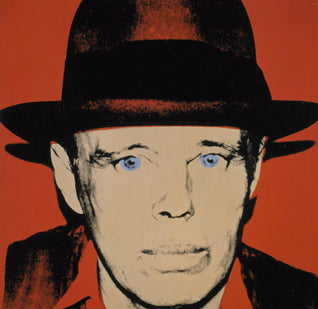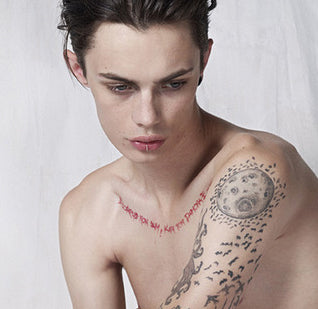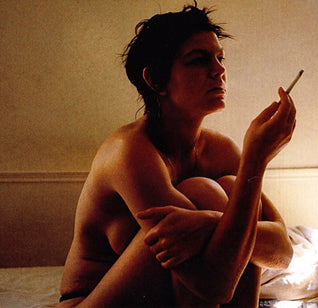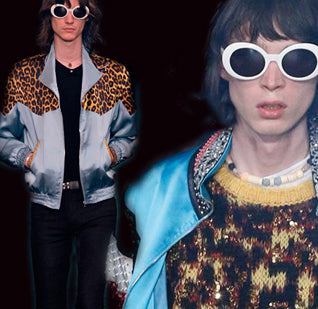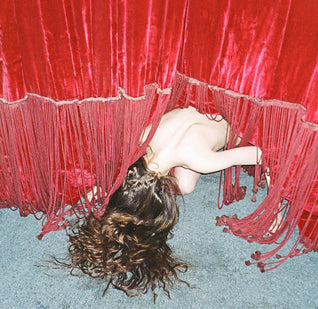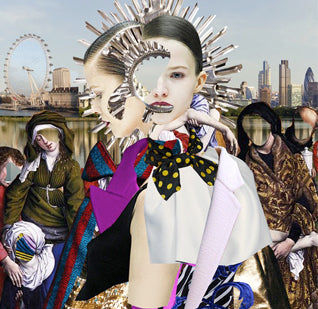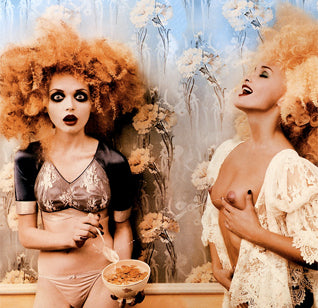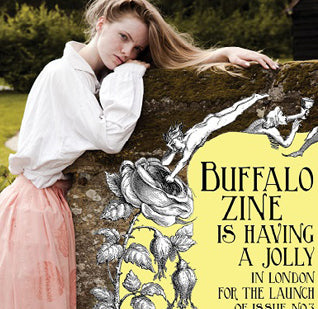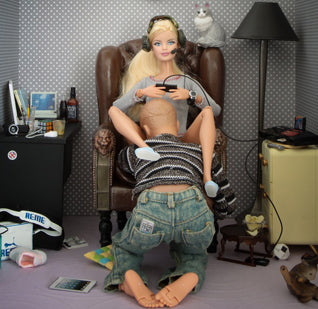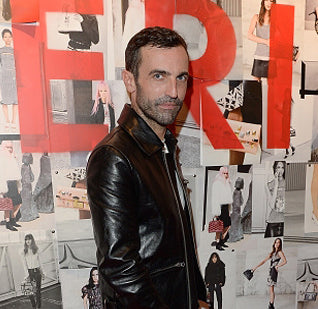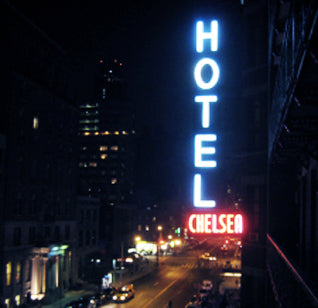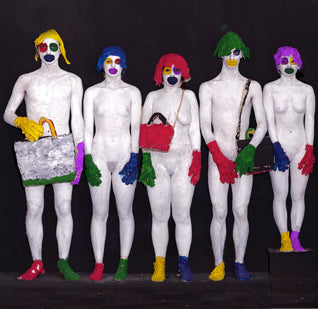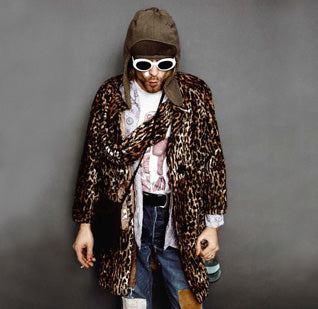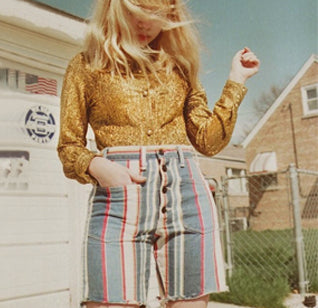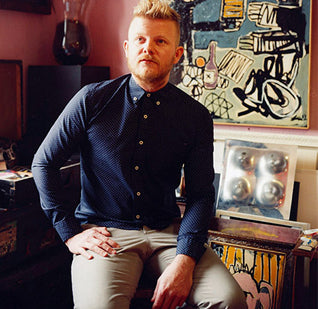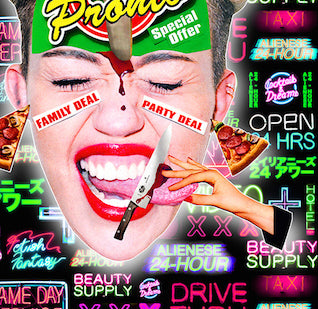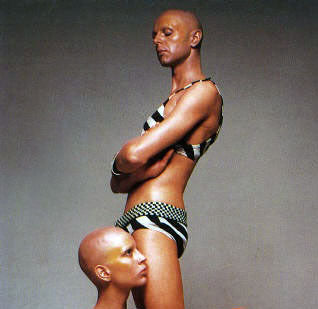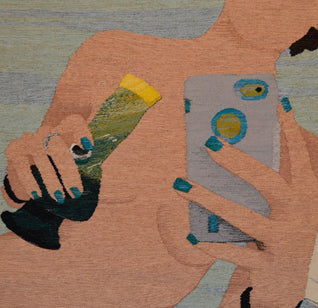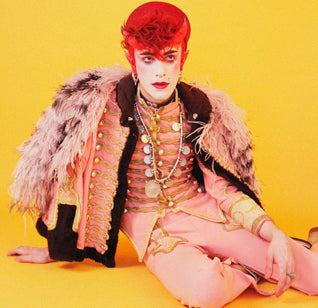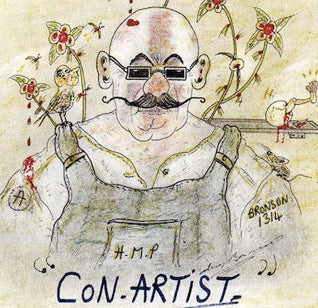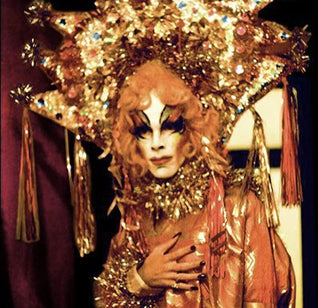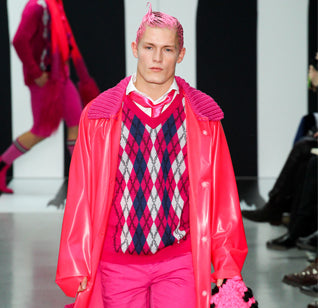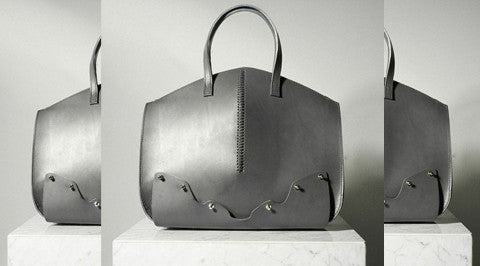Fashion Never Fails to Shock
High-street brands like Urban Outfitters use sensationalism to profit
by Lucy Draper
Urban Outfitters has never been a brand to avoid controversy but this time they appear to have gone too far. The shop was recently forced to recall a blood-spattered ‘Vintage Kent State Sweatshirt’ after shoppers complained of its insensitivity considering the massacre that happened at the university in the 1970s. Yes, the hipster’s favourite store has been using the horrendous killing of students to tout their merchandise, putting aside morals, taste and any sense of decency (to put it lightly).
And this is not the first time that Urban has been in trouble. In 2010 they pulled a T-shirt emblazoned with the words “Eat Less”; 2008 saw the retailer selling a shirt depicting a young Palestinian, holding a gun and stamped with the word ‘Victimized’; and in 2011 they were sued by a model whose picture - taken when she was 15, wearing leather shorts and with her legs apart – was printed on shirts without her permission.

Urban Outfitters' 'Fresh Jive Victimized Tee', 2008, juxtaposed with a real Palestinian child soldier
But before we all start boycotting the hipster’s paradise, it’s worth considering other high street shops that have also used shock tactics to sell their wares. American Apparel is a particularly bad offender. Who could forget their ‘Back to School’ campaign released in August this year, whose adverts depicted a schoolgirl leaning over in a checked skirt with her pants clearly on display? Or their $32 T-shirt which featured an illustration of a hand masturbating a menstruating vagina. Or indeed their New York shop display where the mannequins came complete with a big bush of pubic hair, scarcely concealed under leotards.

American Apparel's 'Back to School' Campaign, 2014
Indeed, one of the earliest high street shops to successfully use controversy to ensure publicity was French Connection. The company became notorious for its ‘FCUK’ acronym in the late 1990s – it was emblazoned on T-shirts, adverts, accessories – and eventually led to the UK’s Advertising Standards Authority demanding that the company had to have their approval for every poster and print advert before they could publish them.
So can fashion ever justify using shock tactics as a means to an end? Should controversy be courted if it means that people are talking about (and, of course, buying) their clothes? Well – I would say it depends on who is doing it. For high-end fashion designers making a statement and creating conversation is almost as important as what the clothes look like.
Alexandra McQueen is one of the best examples of this. His catwalk shows were infamous: from his 1996 ‘Highland Rape’ show, to using Aimee Mullins – a double amputee and former Paralympian – as a model in 1998, the designer understood how to attract attention (both bad and good) to make a name for himself. This former collection featured torn tartan dresses and dishevelled models and, rather predictably, created quite a media storm with McQueen being accused of misogyny and insensitivity, although the designer insisted the show was to commemorate the English slaughter of his Scottish ancestors.

Alexander McQueen's 'Highland Rape' Catwalk Show, 1996
Yves Saint Laurent’s 2000 advert for their Opium fragrance is another example of high-end fashion treading the very fine line between beauty and distastefulness. The picture, which saw a naked Sophie Dahl reclining across black silk, seemingly in a state of pleasure, led to 948 complaints to the Advertising Standards Agency. The ASA released a statement calling the picture “sexually suggestive” and “degrading” and the advert was eventually banned.

Sophie Dahl in the Yves Saint Laurent 2002 Opium fragrance campaign © Steven Meisel
But for these brands, who operate at the top end of the fashion industry, there is a genuine need to push boundaries. They are considered fashion leaders – the people who shape what we will be wearing in six, eight, twelve months from now. As they form trends and explore new avenues of course they will sometimes cause controversy, but that is what’s become expected of them. Yes, their choices and campaigns might not be to everyone’s tastes but they are challenging the status quo, and paving the way for others to do the same. However, in the case of the aforementioned high street shops, I believe they are playing a much more cynical game.
I do not, for one moment, believe that American Apparel were keen to promote feminism with either their vagina T-shirt or their hairy shop models. After all, this is the same company that has been accused of blatant sexism and exploitation, both in their advertising and indeed in their very own offices – the CEO Dov Charney was sacked after reportedly keeping a girl as a ‘sex slave’ in his apartment.
And as for Urban Outfitters, I think it best they keep a very sharp eye on what they put on their shelves from now on. For me, they are just one blood-spattered jumper away from losing a pretty loyal customer.








